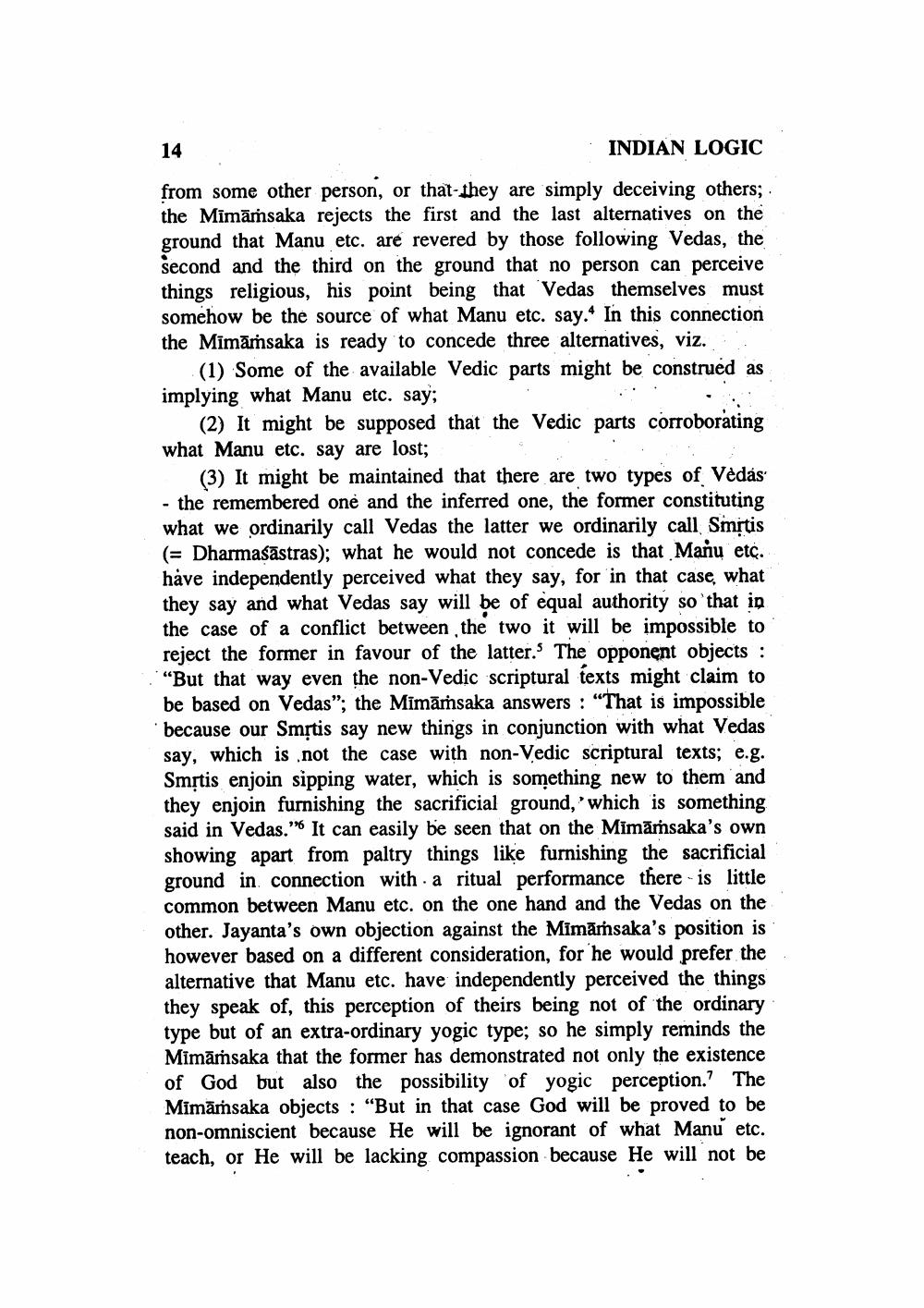________________
14
INDIAN LOGIC from some other person, or that they are simply deceiving others; . the Mimärsaka rejects the first and the last alternatives on the ground that Manu etc. are revered by those following Vedas, the second and the third on the ground that no person can perceive things religious, his point being that Vedas themselves must somehow be the source of what Manu etc. say. In this connection the Mimārsaka is ready to concede three alternatives, viz.
(1) Some of the available Vedic parts might be construed as implying what Manu etc. say;
(2) It might be supposed that the Vedic parts corroborating what Manu etc. say are lost;
(3) It might be maintained that there are two types of Vedas - the remembered one and the inferred one, the former constituting what we ordinarily call Vedas the latter we ordinarily call Smrtis (= Dharmaśāstras); what he would not concede is that Mañu etc. have independently perceived what they say, for in that case, what they say and what Vedas say will be of equal authority so that in the case of a conflict between the two it will be impossible to reject the former in favour of the latter. The opponent objects : "But that way even the non-Vedic scriptural texts might claim to be based on Vedas", the Mīmārsaka answers : "That is impossible because our Smrtis say new things in conjunction with what Vedas say, which is not the case with non-Vedic scriptural texts; e.g. Smstis enjoin sipping water, which is something new to them and they enjoin furnishing the sacrificial ground,' which is something said in Vedas.” It can easily be seen that on the Mimārsaka's own showing apart from paltry things like furnishing the sacrificial ground in connection with a ritual performance there - is little common between Manu etc. on the one hand and the Vedas on the other. Jayanta's own objection against the Mimārnsaka's position is however based on a different consideration, for he would prefer the alternative that Manu etc. have independently perceived the things they speak of, this perception of theirs being not of the ordinary type but of an extra-ordinary yogic type; so he simply reminds the Mimāṁsaka that the former has demonstrated not only the existence of God but also the possibility of yogic perception. The Mimāṁsaka objects : “But in that case God will be proved to be non-omniscient because He will be ignorant of what Manu etc. teach, or He will be lacking compassion because He will not be




